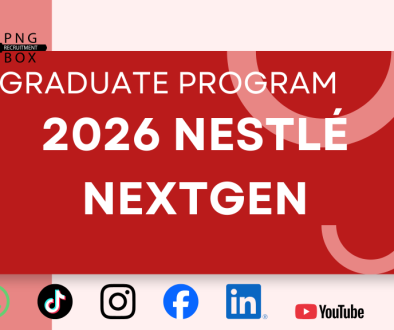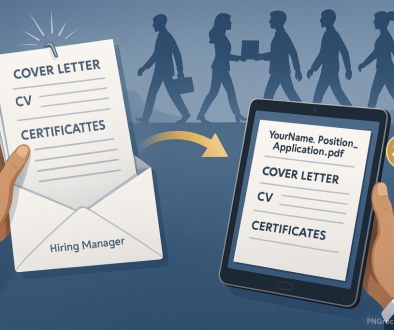The Critical Role of Strong Referees in Your CV: Building Trust, Credibility, and Career Success
In today’s competitive job market, a well-crafted CV is only part of the equation. Increasingly, employers and academic institutions are turning to references to validate claims, assess cultural fit, and mitigate hiring risks. While skills and experience dominate the spotlight, the referees listed on your CV—those who vouch for your professional and personal qualities—can make or break your application. This article explores why strong referees are indispensable, drawing insights from career experts, academic research, and industry trends.
1. The Evolution of CV References: From Formality to Strategic Asset
Historically, including referees on a CV was standard practice. Today, the approach has shifted. Most career experts advise candidates to omit full references and instead write, “References available upon request” to conserve space. However, exceptions exist:
- Academic applications: References are often mandatory, as universities and research institutions rely on endorsements from professors or supervisors to validate academic rigor and potential.
- High-stakes roles: Employers in sectors like healthcare, finance, or government may demand references upfront to expedite background checks.
- Strategic advantage: A referee with industry clout (e.g., a renowned professor or senior executive) can elevate your credibility.
Case Study: A 2023 survey by John Lees, a UK career coach, revealed that while only 30% of recruiters prefer seeing references on a CV, 70% consider them critical after shortlisting. This underscores their role as a “trust bridge” between candidates and employers.
2. Why Good Referees Matter: The Science of Trust
a) Verification of Claims
Employers face a deluge of applications, many with inflated or falsified credentials. References act as a safeguard. For example, if your CV states you “led a team that increased sales by 20%,” a referee can confirm this achievement and elaborate on your leadership style. According to a 2024 study by CV-Review.org, 87% of employers conduct reference checks, highlighting their reliance on third-party validation.
b) Cultural Fit and Soft Skills
Technical skills are quantifiable, but traits like teamwork, adaptability, and integrity are harder to assess. Referees provide nuanced insights:
- A former manager might highlight your conflict-resolution skills.
- A professor could attest to your curiosity and resilience during challenging projects.
c) Mitigating Hiring Risks
Hiring the wrong candidate costs companies an average of 30% of the employee’s annual salary, according to the U.S. Department of Labor. References reduce this risk by offering unfiltered perspectives on a candidate’s reliability and work ethic.
3. Academic vs. Professional Contexts: Tailoring Your Approach
Academic CVs
In academia, references are non-negotiable. Graduate schools and research institutions prioritize endorsements from:
- Thesis advisors: They validate research capabilities and intellectual curiosity.
- Lecturers: They speak to classroom performance and critical thinking.
Example: A PhD applicant’s CV might include a reference from a professor who supervised their groundbreaking study on renewable energy, emphasizing their potential to contribute to university research.
Professional CVs
For corporate roles, prioritize referees who align with the job’s demands:
- Former managers: They provide insights into your on-the-job performance.
- Clients or colleagues: Ideal for client-facing roles, as they highlight interpersonal skills.
Pro Tip: Avoid personal references (e.g., friends or family) unless explicitly requested, as they lack professional credibility.
4. The Hidden Risks of Poor Referees
A weak or unprepared referee can derail your application:
- Vague endorsements: A referee unfamiliar with your work may offer generic praise, which recruiters dismiss as insincere.
- Negative bias: A former employer with unresolved grievances might undermine your application.
- Outdated contacts: Referees who’ve retired or changed roles may lack relevance.
Real-Life Example: A marketing candidate listed a senior manager who had left the company years prior. The recruiter struggled to verify the reference, casting doubt on the candidate’s attention to detail.
5. Best Practices for Selecting and Managing Referees
a) Choose Strategically
- Relevance: Select referees familiar with your target industry or role. For a project management position, a former team leader trumps a unrelated supervisor.
- Authority: Senior professionals or recognized experts add weight to your application.
- Communication Skills: Referees who articulate your strengths persuasively leave a lasting impression.
b) Prepare Your Referees
- Permission: Always ask before listing someone. A surprise call from a recruiter can lead to awkwardness or lukewarm feedback.
- Briefing: Share the job description and highlight skills you’d like them to emphasize. For example, “The role requires crisis management—could you mention how I handled the 2023 product launch delays?”.
- Updates: Keep referees informed about your career progress to ensure their endorsements remain current.
c) Formatting and Presentation
- Consistency: Use the same font and style as the rest of your CV.
- Details: Include the referee’s full name, title, organization, email, and phone number. For example:
Dr. Emily Gizoriong
Professor of Biomedical Engineering, PNG University of Technology
ezhang@uot.ac.pg | (6750) 123-4567
Relationship: Lecturer/Thesis Advisor (2022–2024).
6. The Future of References: Trends and Innovations
- Digital Verification: Platforms like LinkedIn allow recruiters to view endorsements and recommendations publicly, reducing reliance on traditional references.
- AI-Driven Checks: Tools like HireRight automate reference checks, scanning for inconsistencies in employment history.
- Diversity and Inclusion: Companies are increasingly seeking references from diverse networks to combat unconscious bias.
Conclusion: Referees as Career Advocates
Strong referees are more than just contacts—they are advocates who amplify your professional narrative. By carefully selecting, preparing, and presenting your referees, you transform your CV from a static document into a dynamic testament to your capabilities. As recruitment evolves, the human element of trust remains irreplaceable, making referees a cornerstone of career success.
References and Further Reading
- Sobhan Mohmand, CV Plaza: How to Write References on a CV
- Wordvice: Academic CV Examples
- CakeResume: CV References Guide
- CVFormat: References on Your CV
- StandOut CV: CV References Best Practices
- CV-Review.org: How to Write References on a CV
This content was generated using Artificial Intelligence: DeepSeek – Into the Unknown
REMEMBER! When applying for a job, it’s crucial to include a cover letter that clearly outlines your interest in the position and your suitability for the role, along with an updated curriculum vitae. Here are 5 valuable tips on crafting emails that grab attention and get read, as well as advice on structuring your CV to make a strong impression. By following these guidelines, you can enhance your application and increase your chances of landing the job you desire.
Discover more from PNG Recruitment Box
Subscribe to get the latest posts sent to your email.




